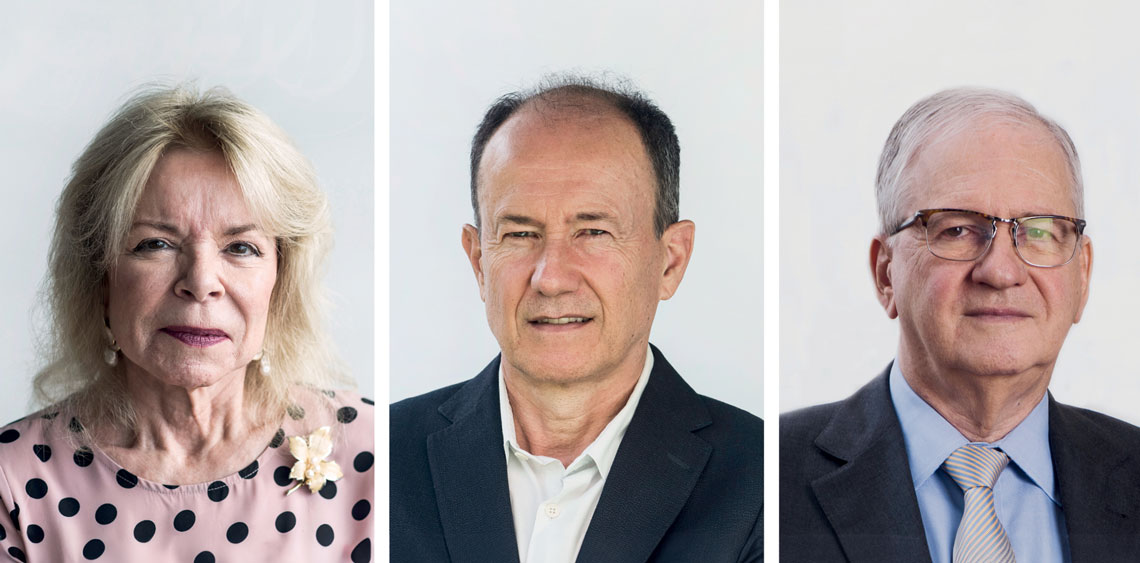
Léo Ramos Chaves / Pesquisa FapespMaria Arminda do Nascimento Arruda, Marcílio Alves, and Marco Antonio Zago: board membersLéo Ramos Chaves / Pesquisa Fapesp
On March 12, Tarcísio de Freitas, the governor of São Paulo, appointed Maria Arminda do Nascimento Arruda, Marcílio Alves, and Marco Antonio Zago to the FAPESP Board of Trustees as representatives of the University of São Paulo (USP), each with a six-year term. Maria Arminda Arruda is a social science professor at the School of Philosophy, Languages and Literature, and Human Sciences (FFLCH) and has been USP’s vice dean since 2022. She previously held roles as dean of culture and university extension (2010–2015) and FFLCH director (2016–2020). She was also executive secretary of the National Association for Graduate Studies and Research in Social Sciences (ANPOCS) from 2000 to 2004 and a human sciences representative on the Scientific Board of the Brazilian Federal Agency for Support and Evaluation of Graduate Education (CAPES) from 1998 to 2001. Mechanical engineer Marcílio Alves teaches mechatronics engineering at the Polytechnic School and represents USP professors on the university council. As executive director of the University of São Paulo Foundation (FUSP), he advised the Brazilian Ministry of Industry and Foreign Trade in the area of vehicle safety standards and was head of the Mechanical, Naval, Oceanic, and Aerospace Engineering Advisory Committee at the Brazilian National Council for Scientific and Technological Development (CNPq). Doctor Marco Antonio Zago, who has been a member of the Board of Trustees since 2018 and is the current president, is professor emeritus at USP’s Ribeirão Preto School of Medicine (FMRP). He has previously acted as president of CNPq (2007–2010), dean of research at USP (2010–2014), dean of USP (2014–2017), and São Paulo state health secretary (2018). He was head of the Ribeirão Preto Cell Therapy Center (CTC)—one of FAPESP’s Research, Innovation, and Dissemination Centers (RIDCs)—between 2001 and 2015, was clinical director of the Ribeirão Preto Hospital das Clinicas, and was a member of Brazil’s National Biosafety Commission (CTNBio).
Republish